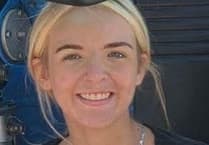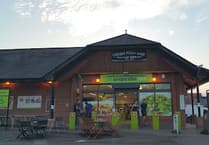This time of year, countless walkers hit the hills to enjoy the breathtaking scenery the Wye Valley countryside has too offer. Those doing so can now document their routes so that others can enjoy them, in what could be described as a Wikipedia of walks.
Slow Ways is an initiative to create a national directory of walking routes connecting all of Great Britain's towns and cities as well as thousands of villages.
Using existing paths, trails and roads, people can find maps and information for routes to walk or cycle. Routes can even be combined to create longer distance trips. It's designed to make it easier for people to imagine, plan and go on walking journeys.
So far, there are seven thousand listed routes which total over 100,000km. This is all the collective work of over 700 volunteers, much of which was done during the spring 2020 lockdown, creating an interlocking map in the process. The next challenge is to walk, review and verify them all.
Local walkers are now being encouraged to help improve the quality of data on the Slow Maps website. Anybody can help out, all they need to do is go to SlowWays.org, sign up, choose a route, walk it, and review the walk on the website.
There are several walking routes listed from Ross-on-Wye. They go to: Mitcheldean, Newent, Ledbury, Coleford, Orcop Hill, and two routes to Monmouth. Walkers can also add their own routes for others to review and survey.
Information on the routes include the quality of the path, the distance, the ascent, the descent, and any potential obstacles such as stiles or stairs. Each route includes a map and participants can also add photographs.
Slow Ways aims to inspire and support more people to walk more often, further, and for more purposes.
While there are thousands of miles of paths linking places across Great Britain, there isn't a comprehensive and trusted directory designed to help people walk off-road between towns and cities. That's what the Slow Ways initiative, with its geometric connections, is creating.
The vast majority of routes start and finish in populated places, with varied transport links, food, and accommodation options. The idea is that this makes it easier to plan short, medium and long-distance journeys.
As people walk, review, rate, survey, and create new routes this will evolve into a more comprehensive utility.
Additionally, in time, it hopes to help those with specific needs easily find routes that meet their requirements.
Contributors design routes that follow a set methodology. As far as is reasonable a route should: be safe, respect local codes and laws, be accessible to as many people as possible, be direct, be off road, have resting places to eat or sleep every 5 and 10km, pass through train and bus stations, be easy to navigate, be enjoyable, beautiful, and use established routes.
Routes must start and finish at a designated location identified in the centre of the villages, towns or cities that are being connected.
Slow Ways was formed in 2020 as a non-profit community interest company (CIC). The organisation plans for versions of the verified network of walking routes to be released under a Creative Commons license so that people and organisations can freely download, share and innovate with it.




Comments
This article has no comments yet. Be the first to leave a comment.